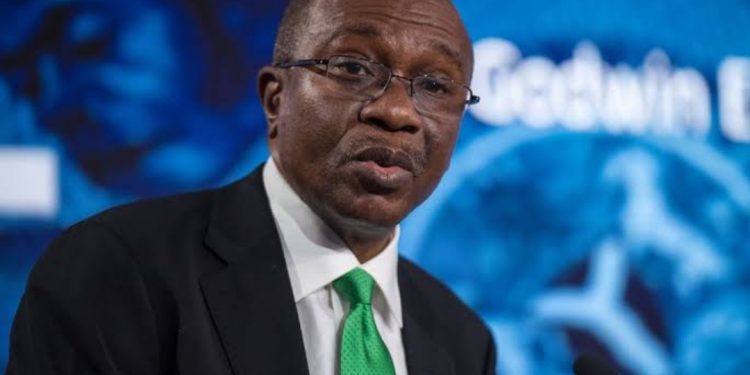By John Ikani
The Central Bank of Nigeria (CBN) has stated that excessive borrowing by the Federal Government from the CBN’s Means and Ways Advances window could frustrate CBN’s Monetary Policy.
This was disclosed in the Monetary Policy category of the CBN’s Frequently Asked Questions page.
Ways and Means Advances is a loan facility by the central bank to finance the government during temporary budget shortfalls subject to limits imposed by law.
Under the sub-section, titled ‘Can the Federal Government frustrate the Central Bank of Nigeria from pursuing its monetary policy?’, it was stated that there were certain distortions or surges in the monetary base due to the central banks financing deficits.
The response read in part, “Yes, when the Federal government exceeds its revenue, the CBN finance government deficit through Ways and Means Advances subject (in some cases) to the limits set in the existing regulations, which are sometimes disregarded by the Federal Government.
“The direct consequences of the central bank’s financing of deficits are distortions or surges in monetary base, leading to adverse effect on domestic prices and exchange rates i.e macroeconomic instability because of excess liquidity that has been injected into the economy.”
The CBN also explain the monetary goals it seeks to achieve saying, “The ultimate goals of monetary policy are basically to control inflation, maintain a healthy balance of payment position in order to safeguard the external value of national currency and promote adequate and sustainable level of economic growth and development. These goals are achieved by controlling money supply in order to enhance price stability (low and stable inflation) and economic growth.”
The CBN, as the Federal Government of Nigeria’s banker, handles the majority of the government’s banking business both inside and outside Nigeria.
It also helps the government cover temporary budget gaps using so-called Ways and Means advances (W&M), which are limited by law. W&M advances would continue to be available to the FGN to finance deficits up to 5.0% of the previous year’s real collected revenue, according to section 3.2.15 of the CBN’s Monetary, Credit, Foreign Trade, and Exchange Policy set of guidelines released in September 2020.
A global credit rating agency, Fitch Ratings, had in January 2021 raised concerns over the Federal Government’s repeated recourse to its Ways and Means facility with the CBN.
It criticised the CBN for allowing the Federal Government’s borrowing to exceed the five per cent limit.
“The CBN’s guidelines limit the amount available to the government under its Ways and Means Facility to five per cent of the previous year’s fiscal revenues.
“However, the FGN’s new borrowing from the CBN has repeatedly exceeded that limit in recent years, and reached around 80 per cent of the FGN’s 2019 revenues in 2020,” it said.
The agency said that the use of central bank financing in Nigeria could raise pose macro-stability risks in the context of weak institutional safeguards that preserve the credibility of policymaking and the ability of the central bank to control inflation.
Although Fitch Ratings said it expected the Nigerian Government to reduce its use of the CBN facility, it remains unclear whether the apex bank would cut down on its continued financing of the Government’s deficit.



































